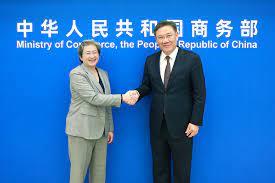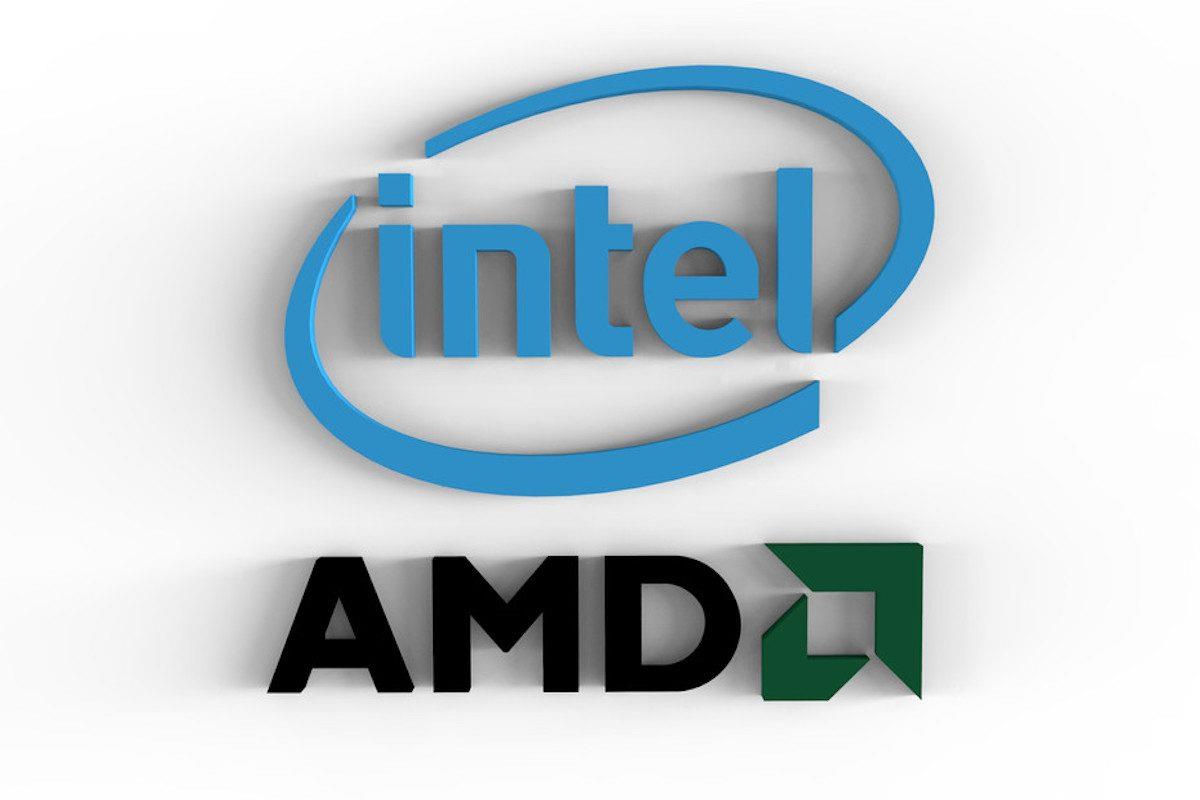
Are New Chinese Rules A Warning To AMD And Intel?
The government said the central, provincial and municipal governments should meet some new safety and reliability requirements when procuring their desktop and laptop computers, according to two statements jointly released by the Ministry of Finance (MoF) and the Ministry of Industry and Information Technology (MIIT).
The two ministries said local governments on the county and town levels do not need to follow the new procurement rules.
The statements were released in a low-profile manner on December 26, 2023 and caught public attention only after being reported by the Financial Times on Sunday.
The UK newspaper said China has introduced new guidelines that will mean US microprocessors from Intel and AMD are phased out of government desktop computers and servers.
In fact, the statements did not mention AMD and Intel or any other suppliers. The China Information Technology Security Evaluation Center (CNITSEC), a unit of the Ministry of State Security (MSS), said on December 26 that 18 CPUs, six operating systems and 11 centralized databases had passed the country's reliability assessment. All these products were developed by Chinese firms.
The CNITSEC said the 18 CPUs by then certified as“reliable” included Kunpeng 920, Loongson 3C5000L, Sunway 1621, Feiteng 2000, Kirin 9006C, Hygon C86-3G and Zhaoxin ZX-E processors.

Why ISIS-K has Russia in its terrorist sights

To be disappeared in Tajikistan
It listed six“reliable” operating systems made by the National University of Defense Technology's Kylinsoft; the UnionTech Software Technology Co; and the Chinese Academy of Sciences Institute of Software's National Fundamental Software of China.
It said suppliers of CPUs, operating systems and centralized databases can apply for a reliability assessment by submitting their products' design, research and development documents and codes to it. It said there are two rounds of assessments per year, one in January-February and another in July-August.
It said that, once a product passes the assessment, it can be added to a list of“reliable” products for three years.
The wording suggests that AMD and Intel can still have their products used by Chinese government departments and agencies if they are willing to pass their R&D information to Beijing.
New procurement rulesAccording to the two statements released by the MoF and the MIIT, government departments and agencies should procure their computer hardware and software separately.
The two statements said computer suppliers must be able to provide free maintenance services for at least three years. Besides, suppliers need to give the buyers notice a year in advance if they want to terminate their supply contracts. If a product is discontinued, the supplier needs to provide maintenance services for six more years.
They said suppliers have legal responsibility to ensure that their CPUs and operating systems meet the country's safety and reliability requirements.
“The new procurement rules can help standardize the terms used in government tenders,” Han Lu, an official at the Central Government Procurement Center, said in an article published on February 1.“In the past, procurement documents used different terms and definitions, making it difficult for the country to build a standardized procurement market.”
Han said suppliers, thanks to the new rules, could understand government tenders more easily and fine-tune their production and sales operations to suit the government's needs. He added that detailed procurement rules could help avoid failed tenders and thus help bidders minimize their costs.
Some commentators said the Chinese government might not actually want to ban the use of AMD and Intel processors but it wanted to remind American technology firms to keep investing in China and increase technological cooperation with their Chinese counterparts.
Some others said even if AMD and Intel processors are to be phased out from government offices in the coming years, private firms can still use them.

Minister Wang Wentao's meeting with AMD's Lisa Su. Photo: Ministry of Commerce
On Sunday, Chinese Commerce Minister Wang Wentao met with AMD Chair and Chief Executive Lisa Su in Beijing.
Wang told her that the development of the semiconductor sector requires global cooperation and that China is a stabilizing force for the global semiconductor supply chain. He said the United States should work together with China to draw clear security boundaries and provide stable expectations for businesses.

Sign up for one of our free newsletters
- The Daily ReportStart your day right with Asia Times' top stories AT Weekly ReportA weekly roundup of Asia Times' most-read stories
Su said China is a priority of AMD's global strategy. She said the company will continue to increase its investment in China and work with its Chinese partners to provide better products and services for the China market.
On Saturday, Wang met with Sanjay Mehrotra, president and chief executive of Micron Technology.
Mehrotra said Micron has plans to expand investment in China to meet the needs of Chinese clients, and contribute to the development of China's semiconductor industry and digital economy. He stressed that the company will strictly follow Chinese laws and regulations.
Last May, the Cybersecurity Review Office, a unit of the Cyberspace Administration of China, banned the country's key national infrastructure operators from purchasing products from Micron due to national security concerns.
In June, the US chip maker said it will invest US$603 million over the next few years in its chip packaging facility in the city of Xian.
US Treasury Secretary Janet Yellen is expected to visit China in April, Politico reported on Saturday. A Treasury spokesperson declined to comment on the report.
Read: US to vent overcapacity complaints in Beijing talks
Follow Jeff Pao on Twitter at
@jeffpao3
Thank you for registering!
An account was already registered with this email. Please check your inbox for an authentication link.

Legal Disclaimer:
MENAFN provides the
information “as is” without warranty of any kind. We do not accept
any responsibility or liability for the accuracy, content, images,
videos, licenses, completeness, legality, or reliability of the information
contained in this article. If you have any complaints or copyright
issues related to this article, kindly contact the provider above.


















Comments
No comment